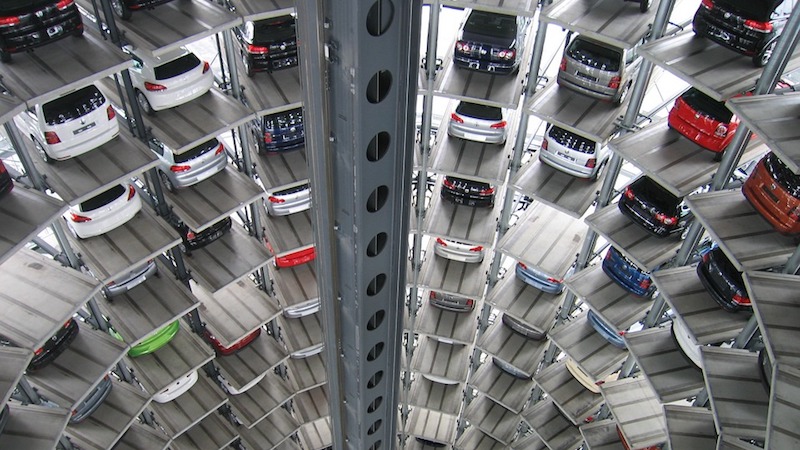Carmakers are on course to be hit with EU fines of between €2.4-11.2 billion euros ($2.7-12.6bn) for failing to meet the bloc’s emissions targets in just two years time, ratings agency Moody’s said on Thursday.
Without drastic action half of the world’s largest automakers will miss Europe’s 2021 standards for CO2 emissions. The penalties for failure could lead to credit downgrades, the ratings agency warned.
By 2021, manufacturers’ average car will need to emit a maximum of 95 grams of CO2 per kilometre, versus 118.5g in 2017. Manufacturers have the choice of how to achieve this, with some focusing on hybrids while others are betting heavily on fully-electric vehicles.
But companies are lagging far behind the looming standards. For most automakers, more than half of their new cars breach the 2021 standards. This includes Renault-Nissan, Volvo, Fiat Chrysler, Hyundai, BMW, Daimler AG, Ford, Volkswagen, Honda and Jaguar.
NGO ignored warnings about bullying boss, before and after tragedy
The report’s most optimistic scenario, under which makers push a swift transition, still predicts that half the manufacturers could rack up a cumulative €2.4 billion in penalties for failing to comply. The worst case scenario could see the industry pay up to €11.2 billion in fines.
“The rapid transition scenario should be feasible for most companies,” Moody’s said.
The credit rating agency found a shift away from buying diesel cars had made the transition harder. Diesel cars release less carbon dioxide than petrol vehicles. But Europeans have deserted the fuel following the revelations in 2015 that Volkswagen and other automakers had tampered with its engines to meet emission standards during laboratory testing. Between 2017 and 2018, sales of diesel-powered cars fell from 44% of new registered cars in Europe to 36%, down a peak of 56% in 2011.
Volkswagen, Fiat Chrysler, Ford and Hyundai-Kia lag most behind their 2021 targets. Accordingly, they are most at risk of large fines, said Moody’s.
“These fines would be credit negative for the companies,” the report concluded.
We need your help… Climate Home News is an independent news outlet dedicated to the most important global stories. If you can spare even a few dollars each month, it would make a huge difference to us. Our Patreon account is a safe and easy way to support our work.
A spokesperson for the agency said ratings assessments took into account “how advanced the company is in developing ‘alternative fuel vehicles'”. This can work in a company’s favour too.
“We also referred to CO2 performance in a recent rating action on Peugeot – the company’s plans to comply were seen as a positive if they can be delivered,” the spokesperson said.
Boosted by its development of battery-assisted hybrids, Toyota emerged as the only company on track to meet EU targets.
The market threats do not limit themselves to Europe, the report noted, with the US and Chinese governments also pushing for electrification. In the US, car manufacturers get a $2,500 to $7,500 subsidy in the form of a tax credit for consumers for their first 200,000 electric vehicle sales, while sales of pure-battery, plug-in hybrids and fuel-cell cars skyrocketed by 138% in January in China on the back of generous subsidies. Together with Europe, the US and China account for about three quarters of light vehicle sales.
Climate Weekly: Get the all the climate news, straight to your inbox
A spokesperson for the UK car lobby, the Society of Motor Manufacturers and Traders (SMMT) said the “industry is committed to a low carbon future but the anti-diesel agenda and slower than hoped take-up of electric vehicles is now jeopardising industry efforts to meet the most challenging CO2 targets in the world for 2021”.
Cuts to incentives to buying greener cars in the UK, such as plug-in hybrids, did not help the industry cut emissions, the spokesperson said.
“We need policies that encourage rather than confuse, which means a consistent approach to incentives and tax, and greater investment in charging infrastructure. This will be critical to meeting targets and avoiding crippling fines, which will only hinder industry’s ability to invest in future technologies,” said the spokesperson.
